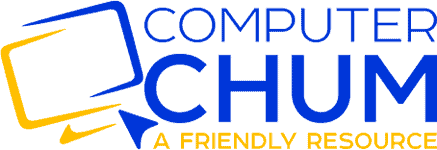There are five main categories for computer users based on what they use their computer for and how advanced they may be.
The five main categories of computer users are small office & home users, home users, mobile users, power users, and large business users. They are distinguished by the skills required to be a part of each category, where they use a computer and their time on a computer.
Depending on where you fit, you may or may not want to improve your skills in some other areas. For instance, you may want to improve your career prospects or make better use of your computer.
What is a small office/home user?
The small office/home user is proficient with basic operating system functions and office productivity software. They’re comfortable with email, messaging, and PDFs. There’s a good chance they have at least a rudimentary understanding of office networking and the flexibility it provides. Finally, they’re comfortable with printing, scanning, and copying documents.
Most small businesses have some CRM or customer relationship management software package. The typical small office/home user can do most customer-focused activities in a CRM to function in the small business world. If you have a more financial role, you’re likely to plug into the accounting portion of such a software package.
It’s also possible that you will need to be able to interact with supplier portals. These are usually web applications that suppliers provide to their resellers so they can manage their product orders.
When these people are at home, they’re comfortable using their computers to do things for fun and personal productivity. Things like gaming, videos, or social media. Or productive activities like doing taxes, banking, or managing investments.
What is a home user?
A home user is comfortable using the basic operating system functions and sometimes office productivity software to make basic documents. Often, the home user leverages their computer to access the web and all its resources. Depending on the person, they may also engage in gaming. Email, messaging, and social media are second nature.
Homework can be a common task on the home computer. For example, writing essays, researching topics, and using calculators or utilities online. In addition, most home users have at minimum a printer, whereas many home users have access to a scanner meaning home users can do some simple document printing and scanning.
Managing the family budget using a spreadsheet application can also be a regular task for more savvy home users. Usually, if a home user has gotten this far, it’s only a hop skip to get to completing their tax returns using a small software package.
What is a mobile user?
A mobile user is someone who travels to school or work to do business or to communicate. Mobile users are also people who use mobile devices almost exclusively. Mobile devices like tablets, smartphones, or laptops.
They are constantly searching for an outlet so that they can sneak in a few minutes of charge time. A normal fashion accessory of the mobile user is a bag or a backpack to carry their devices and knickknacks.
You’ll find them on the train or in a coffee shop beetling away on their devices, keeping in touch with friends or work. You can also find them enjoying their favorite caffeine drink in the local coffee shop while getting some work done. Regardless of the location, if the mobile user can find connectivity, they can set up shop, pop in their headphones, and be productive.
What is a power user?
The power user has developed the skills necessary to use their computer in a more advanced or efficient way. Often they know a large number of hotkeys that let them work very quickly. In addition, they can leverage networking to transfer files and access data in ways that the average person finds mystifying.
Normally, they have figured out how to set up their computer to let them complete ordinary tasks quickly and efficiently. That means setting up shortcuts, using the keyboard more than the mouse, and learning to type quickly.
If they’ve really honed their skills, they can use scripting and programming to automate tasks and do larger tasks quickly. Some of that could be in the form of what’s known as shell scripting or even making mini-programs to complete tasks. When you start to dive into this area of computers, it’s really incredible how flexible and powerful it can be to learn these skills.
What is a large business user?
A large business user has many of the same skills as a small business/home user, but a large business user can use more advanced software packages relevant to the business. For example, employees like engineers, architects, or product designers use large, expensive software offerings to complete their work.
They also need to understand how to use network resources provided through a Windows domain environment. Resources like network printers, network drives, and enterprise-level software. If they are particularly important, they will also have a company mobile phone with its own set of restrictions and applications to learn.
Something that has made its way into today’s large businesses is web applications on the HR side of the business. These are usually rolled into a tool that provides everything from an LMS or Learning Management System to a performance management platform. The problem with them is, most of the offerings today are riddled with bugs and are very clunky. That makes them difficult to learn.
To add insult to injury, training on these tools is non-existent. So if you have folks on your team who are not very computer savvy, they will usually struggle to do even the basic things in these applications. And it’s not really their fault. They’re just inferior applications. Today’s large business user needs to have the skills to learn and adapt to the new tools being rolled out that are less than perfect.
